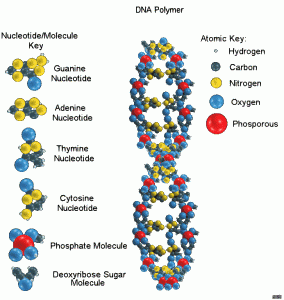The Three-Pound Enigma
The Three-Pound Enigma: The Human Brain and the Quest to Unlock Its Mysteries by Shannon Moffett At the end of the day, what makes you you? Bookslut Author Shannon Moffett attempts to answer that question, among others, in The Three-Pound Enigma: The Human Brain and the Quest to Unlock Its Mysteries. In an age when […]
The Three-Pound Enigma: The Human Brain and the Quest to Unlock Its Mysteries by Shannon Moffett
At the end of the day, what makes you you?
Author Shannon Moffett attempts to answer that question, among others, in The Three-Pound Enigma: The Human Brain and the Quest to Unlock Its Mysteries. In an age when we are becoming immune to the wonders of medicine due simply to the frequency of new discoveries and breakthroughs, it is both humbling and inspiring to find how very much there still is to learn about the three-pound organ at the top of our spinal column that we call home.
Moffett opens her book with a bang, literally, introducing the reader to neurosurgeon Roberta Glick, whose main case of the day involves removing a precariously located bullet in a patient’s brain. Between describing the complex physical and neurological processes that Glick must not impair while removing the bullet, Moffett provides a compelling character portrait of the doctor herself, including her self-described “geriatric motherhood” (due to the demands of her profession, Glick waited to have children until she was almost forty), as well as a technically competent introduction to the physical structure of the brain.
The author’s skillful combination of character description with straightforward medical and scientific description of the brain and our mental processes is in evidence throughout the entire book. Although many science books are not lauded for their attention to character or story details, Moffett’s succeeds as both a highly readable and surprisingly suspenseful book, as well as a comprehensively detailed one. In subsequent chapters she interviews various brain and consciousness specialists, including John Gabrielli (an authority on memory), Christof Koch and Francis Crick (Crick is more well-known as the co-discoverer, along with James Watson, of DNA), who are busily engaged trying to chart the future of research on consciousness, and various sleep, psychiatry, and meditation specialists who are looking for their own ways to unlock the secrets of our mental beings.
Moffett also includes more rigorous “interludes,” describing the development of the brain and its components from conception to death. These interludes are highly detailed but still understandable to the medical amateur. The fact that I may have skimmed parts of these interludes exists more as a testament to the alluring power of the author’s character portraits, and to my own mental laziness, than to any problems in her scientific exposition.
Currently a medical student at the Stanford University School of Medicine, Moffett offers an engaging writing style and an impressive attention to detail: at one point, she provides a footnote that provides the names of graduate students and other researchers who actually do most of the actual research at the big-name labs. She also does a fantastic job of integrating stories and quotes into her chapters; in one particularly memorable moment, she tells the story of a doctor who treated a patient with multiple personalities (or Dissociative Identity Disorder, as it is now known) where the doctor chose to let his patient and his partner indulge in those different personalities: “Because the two didn’t have much else in their lives, he said, ‘I thought, well, what the hell do I have to offer that’s better?’”
Books about our many-splendored brains seem to be consistently popular, if recent titles like Diane Ackerman’s An Alchemy of Mind, and V.S. Ramachandran’s A Brief Tour of Human Consciousness, as well as Oliver Sacks’s classic The Man Who Mistook His Wife for a Hat, are any indication. Moffett’s contribution to the subject deserves to be at least as widely read, if not more so, as her writing is both less hyperbolic than Ackerman’s and more accessible than Ramachandran’s.
I may still not understand, really, what makes me me. But as long as someone knows, even if it’s just my very own three-pound enigma, I can live with that.
The Three-Pound Enigma: The Human Brain and the Quest to Unlock Its Mysteries by Shannon Moffett
Algonquin Books
ISBN: 1565124235
304 pages
More at Bookslut








